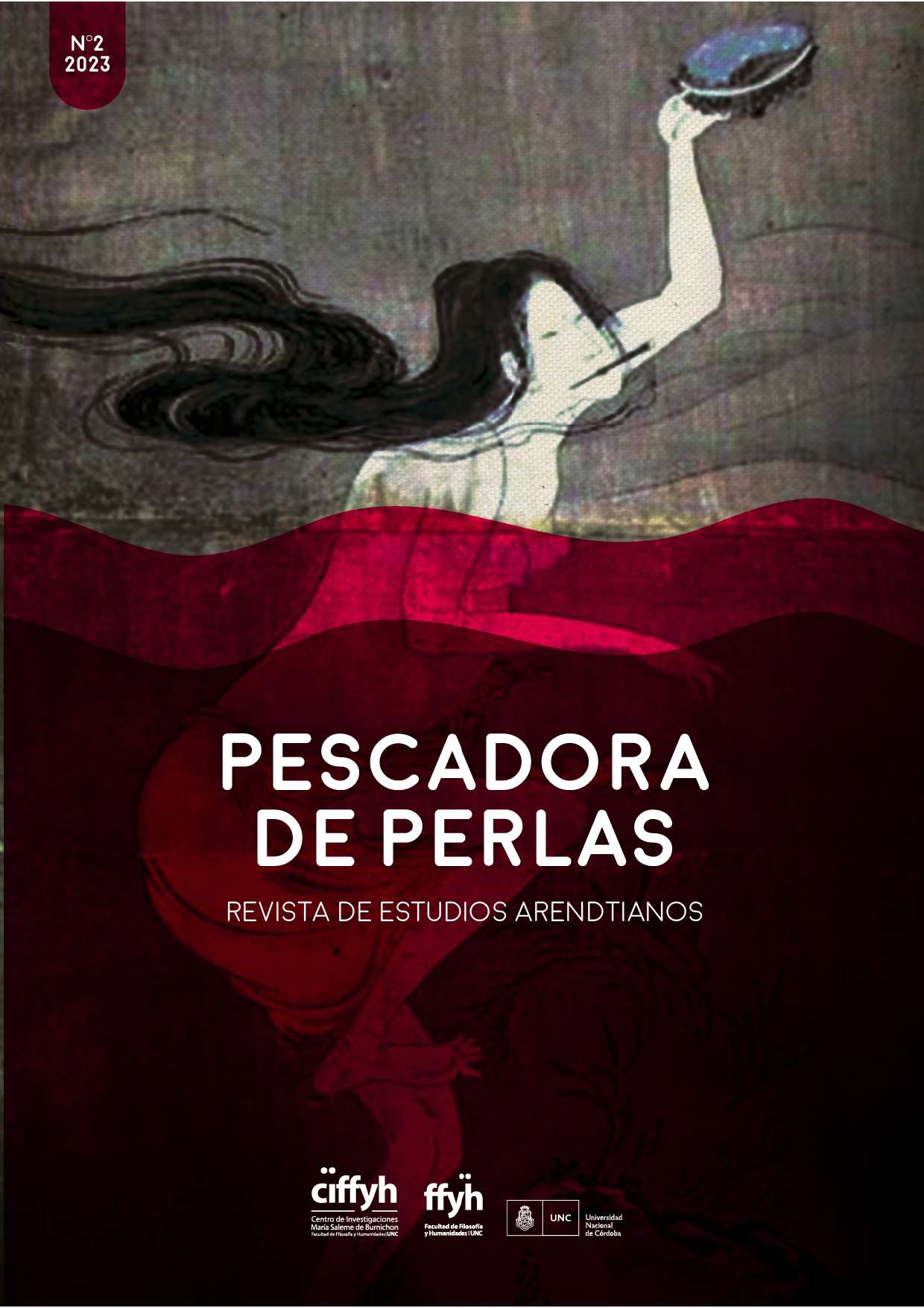Arendtian Republicanism(s) Readings between action and institution.
Keywords:
republicanism, revolucionary councils, actionAbstract
The configuration of an Arendtian republicanism has been debated for several years in various academic and intellectual spaces. Throughout this paper, we seek to explore the characteristics of the distinctive type of Republicanism that Margaret Canovan (1993), in her now classic study, attributes to Arendt's thought.
On this reconstruction, we seek to raise a series of questions linked to reflect on the importance that institutions acquire therein, understood as fortresses whose main objective is to preserve the World from the dangers of the extraordinary capacity of action of men.
In the face of this, we propose another republican reading configured from a phenomenological perspective of politics that allows not only to decenter the institutions but also to reflect on the constitutive tension between action and institution. It is in the light of these reflections that we believe that Arendt's complex analysis of the Revolutionary Councils can be rethought.
References
Arendt, H. ([1963] 2008), Sobre la Revolución. Buenos Aires: Alianza. Arendt, H. ([1972] 2015). Crisis de la República. Buenos Aires: Cuenco del Plata. Arendt, H. (2007). Reflexiones sobre la Revolución Húngara, en Karl Marx y la tradición del pensamiento político occidental. Madrid: Encuentro.
Birulés, F. (2017). Entreactos. En torno a la política, el feminismo y el pensamiento. Buenos Aires: Katz.
Canovan, M. (1974). The Political Thought of Hannah Arendt. Nueva York y Londres: Harcourt Brace Jovanovich.
Canovan, M. (1992). Hannah Arendt. A reinterpretation of her Political Thought. Cambridge: Cambridge University Press
Canovan, M. (1997). “Hannah Arendt as a conservative Thinker” en May, L; Kohn, J. (1997) Hannah Arendt: Twenty years Later. Cambridge y Londres: The MIT Press
Duarte, A. (2016). “Poder, violência e revolução no pensamento político de Hannah Arendt”. Cadernos de Filosofia Alemã, v. 21, p. 13-27.
Forti, S. (2006). “Introduction: Hannah Arendt’s legacy at 100 years of her birth”. Revista de Ciencia Política.Vol. 26, N°2. Págs. 121-123.
Honig, B. (1997). “Hacia un feminismo agonístico: Hannah Arendt y las políticas de identidad”. Feminaria. Año XI, Nº 21.
Lefort, C. ([1985] 2000) “Hannah Arendt y la Cuestión de la Política” en Birulés, F. (2000) Hannah Arendt: el orgullo de pensar. Barcelona: Gedisa
Pocock, J. G. A. (1971). The Machivellian Moment. Princeton: Princeton University Press
Siegelberg, M. (2013). “Things fall apart: J. G. A. Pocock, Hannah Arendt and the politics of time”. Modern Intellectual History, Volume 10, April. Pp. 109-134 Tassin, E. (1999) Le Trésor Perdu. Hannah Arendt, l'intelligence de l'action politique. París : Payot.
Tassin, E. (2015). “Verbalising violence”. African Yearbook of Rhetoric (6) 1: 39-50. Tassin, E. (2016). Como continuar o que inicia: a tripla aporia revolucionária. Cadernos De Filosofia Alemã: Crítica E Modernidade, 21(3), 111-152. https://doi.org/10.11606/issn.2318-9800.v21i3p111-122.
Downloads
Published
Issue
Section
License
Copyright (c) 2023 Camila Cuello

This work is licensed under a Creative Commons Attribution-NonCommercial-ShareAlike 4.0 International License.
Consultar los Avisos de derecho de autor. Aquellos autores/as que tengan publicaciones con esta revista, aceptan los términos siguientes:
- Los/as autores/as conservarán sus derechos de autor sobre el texto, y garantizarán a la revista el derecho de primera publicación, el cual estará simultáneamente sujeto a la Licencia de reconocimiento de Creative Commons: Atribución – No Comercial – Compartir Igual (by-nc-sa); no se permite un uso comercial de la obra original ni de las posibles obras derivadas, la distribución de las cuales se debe hacer con una licencia igual a la que regula la obra original.
- Después de la publicación, los trabajos podrán ser reproducidos por los autores en otros medios siempre que no se omita la indicación de la publicación original en esta revista. En este sentido, los autores/as podrán adoptar otros acuerdos de licencia no exclusiva de distribución de la versión de la obra publicada (p. ej.: al depositarla en un archivo institucional o publicarla en un volumen monográfico) siempre que se indique la publicación inicial en Pescadora de Perlas.
- La cesión de derechos de primera publicación de los/as autores otorga a Pescadora de Perlas autorización para que el trabajo sea colocado en el repositorio institucional de la Universidad Nacional de Córdoba y difundido a través de las bases de datos.



